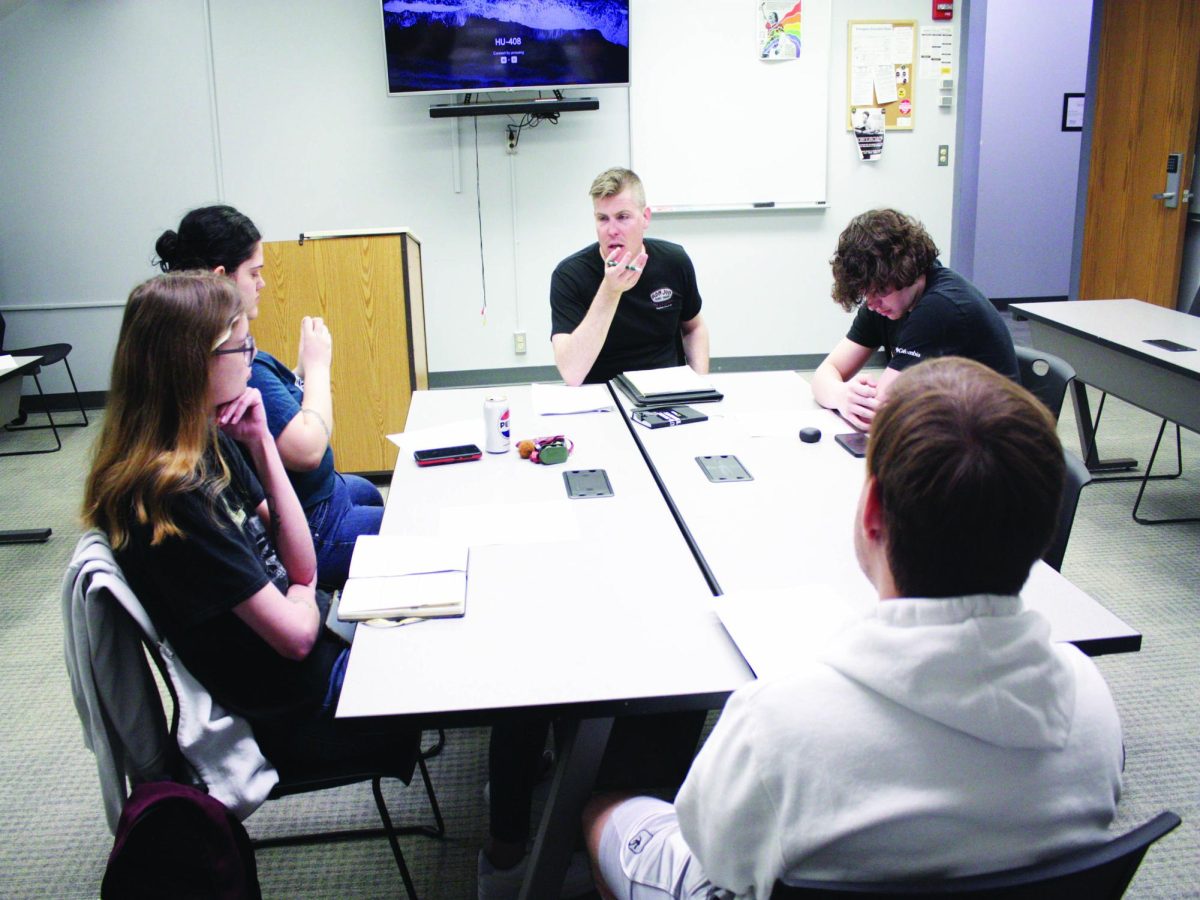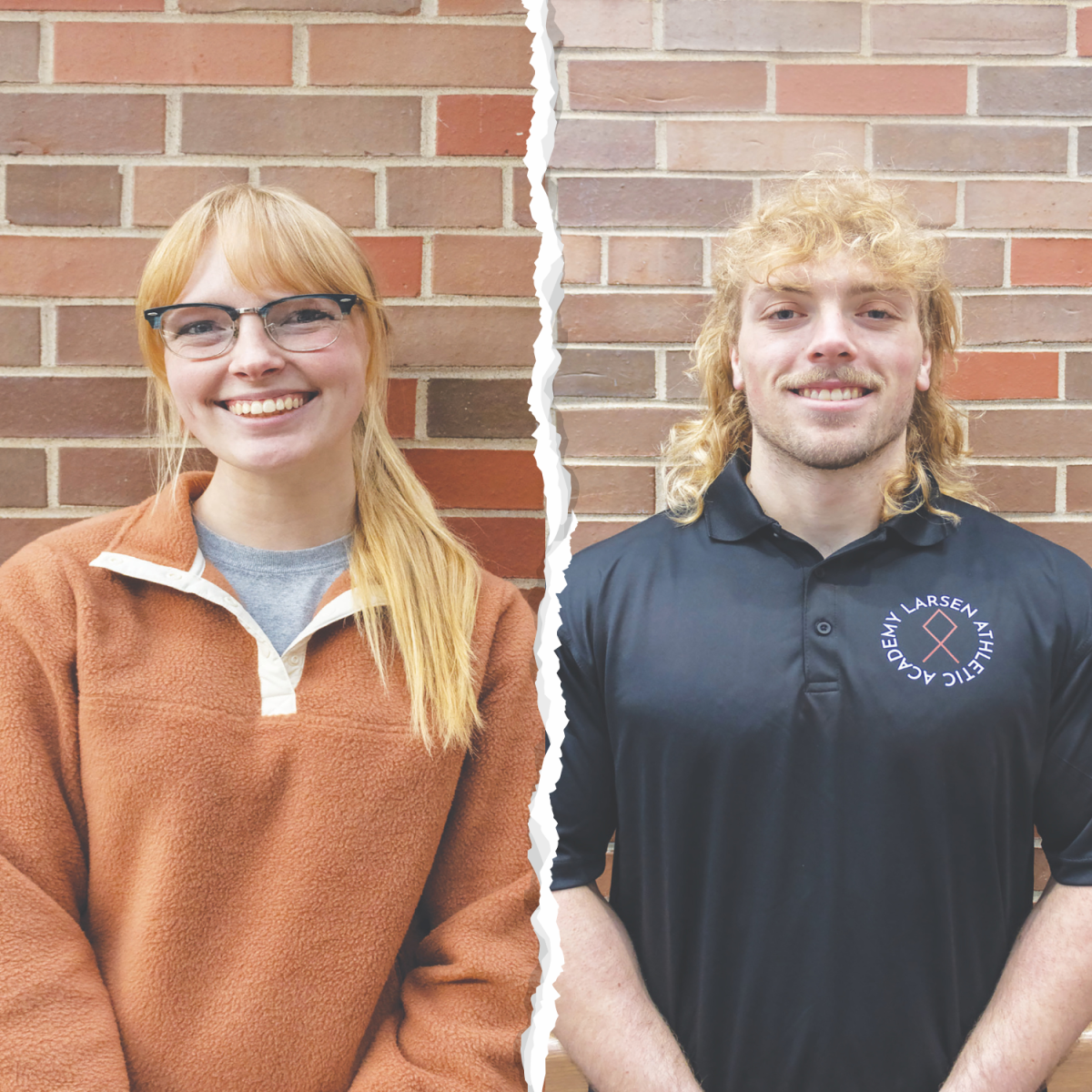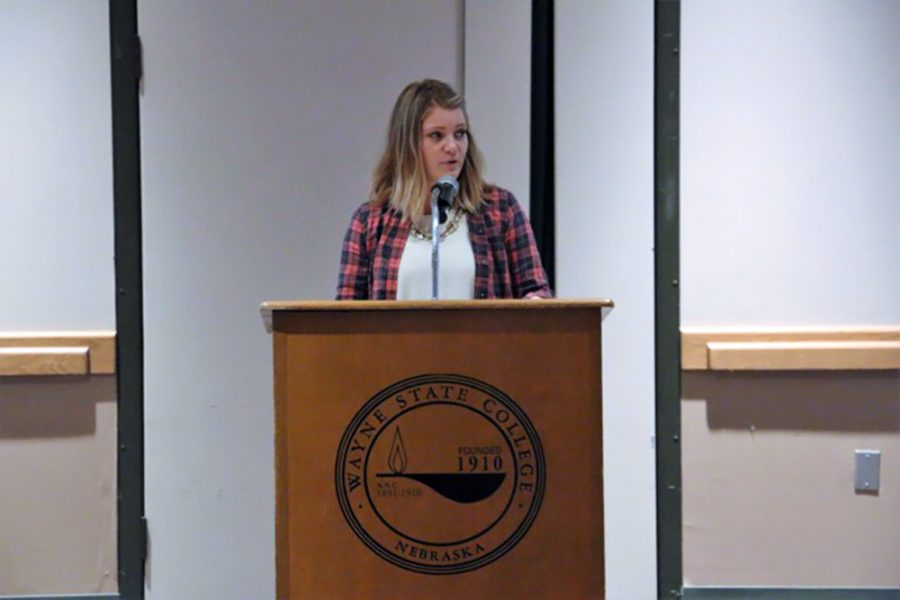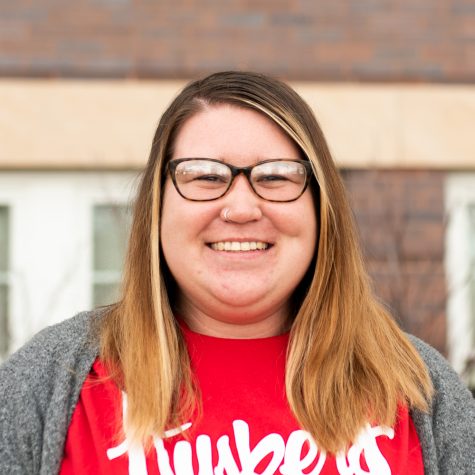“The Hunting Ground” works to keep WSC Campus safe for students
Ainsley Mielke gave a short speech before the movie about how people shouldn’t have to hide the fact that things happen to students and it is okay to need someone to talk to for help.
September 7, 2016
According to the movie “The Hunting Ground,” directed by Kirby Dick, more than 16 percent of college women are sexually assaulted while in college.
Sexual assault on campuses is an ongoing problem at colleges across the United States.
“The Hunting Ground” is a way to make students, parents and colleges aware of what goes on at college campuses and what’s thrown under the rug.
“I think it’s important to educate our population on what is actually happening on campus and to let them know it does really happen,” said Lexi Bartels, a senior at WSC and president of GEM, a group on campus that supported the showing of the movie.
Many colleges choose to ignore this problem or try to silence it by keeping the person who was sexually assaulted quiet. According to the movie, “88 percent of women sexually assaulted on campus don’t report.”
“What you do is you make it difficult for students to report, so you don’t have 200 or a thousand reported assaults, or whatever the number would be on that campus. So you can artificially keep your numbers low,” said Melinda Manning, who is the former Assistant Dean of Students at UNC-Chapel Hill.
According to the movie, colleges want students to think that their campus is a safe place where nothing bad would ever happen, so they don’t want students to call the police about sexual assaults because then it can become a public matter more quickly.
“The student comes to the administrator with a problem, it’s not as if the administration wants that student to be harmed. It’s not as if the administrator wants the harm to be perpetuated, but their first job is to protect the institution from harm, not the student from harm,” said Claire Bond Potter, an Associate Professor at Wesleyan University.
Many girls are told that it was their fault or they were too drunk, or they are asked questions along the lines of: did you say no, what were you wearing, did you flirt with him? When Annie Clark, a student at the University of North Carolina, tried to find out how to report a sexual assault, she was asked, “Rape is like a football game and if you look back on the game what would you do differently?”
When we don’t support victims of sexual assault we are just protecting the one who assaulted them and we are promoting these actions. When Sarah Bedo, a student at the University of South Carolina, tried to seek help after being sexual assaulted, she was not given any support.
“He lectured us about wearing short skirts and how we shouldn’t go out and drink because then it’s our fault.”
Men are also sexually assaulted on campus; 1 out of 71 men will be sexually assaulted some time while attending college.
“After I was sexually assaulted they told me I should just drop out until everything blows over,” said Ryan Clifford, a student at University of California. Men are viewed as not being able to be victims of sexual assault.
In the movie it says that the problem is that the administrations at many colleges don’t want to deal with the reports or the sexual assault claims because it will make their campus look bad and it’s sad to say that some colleges care more about their brand than they do about their students.
“It’s viewed as a public relations issue management kind of problem I would say,” said Kimberly Thedon, a former associate professor at Harvard University.
In 2012, 45 percent of colleges reported zero sexual assaults, unrealistic statistic. During 2009-2013 Harvard University had 135 reported sexual assaults and only 10 suspensions. During 1996-2013, Stanford University had 259 reported sexual assaults with only 1 expulsion.
An issue is that college campuses are afraid of false rape reports although they only make up 2 to 8 percent of reports while 92 to 98 percent of reports are serious.
“When you see movies like this and hear about what goes on at other campuses it makes you think about what goes on at our campus right here in Wayne. Even WSC’s sexual assault statistics are hard to find,” said Bartels.
Even though colleges are not taking sexual assaults seriously on their campuses people are standing up for the rights of others. Andrea Pino, a student at University of North Carolina, started The Courage project. This is a photography project that they post pictures of survivors of sexual assault around campus to let other students know that they are not alone and do have someone they can come to when the administration won’t help.
“It is shocking to me how little is done for sexual assault victims on college campuses,” Bartels said. “The education system is there to educate you yes, but also protect everyone too and they aren’t doing a fantastic job of that right now. I just wish more was done.”
If you or anyone you know is a victim of sexual help and are seeking help or someone to talk to, the WSC Counseling Center is always available and will help. You can find their office in the student center or you can call and make an appointment at 402-375-7321.








